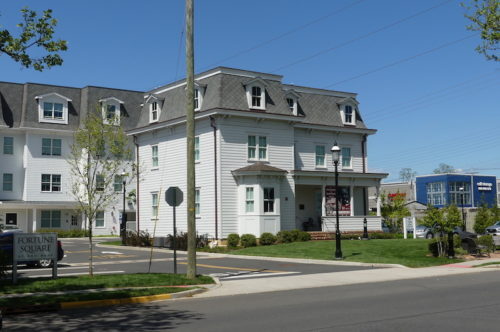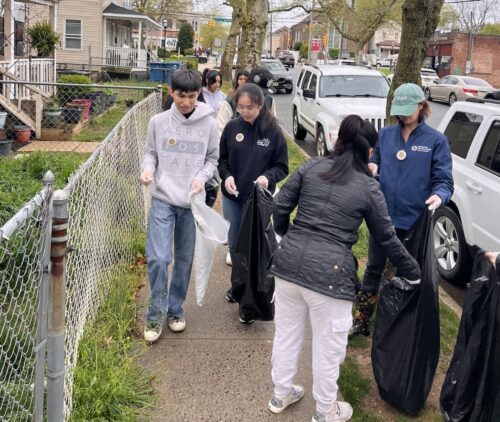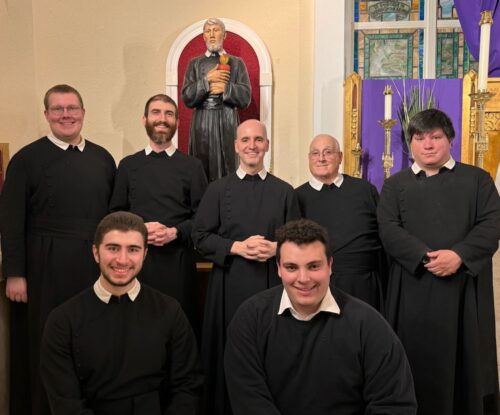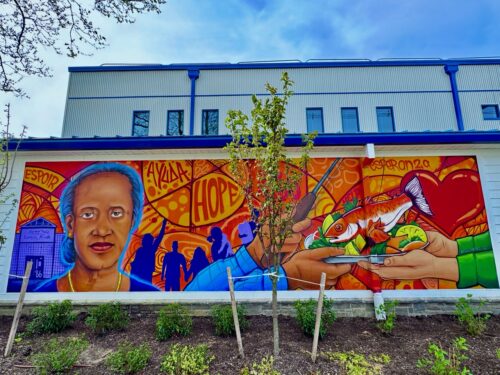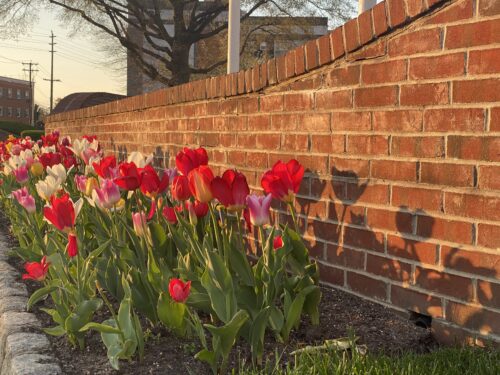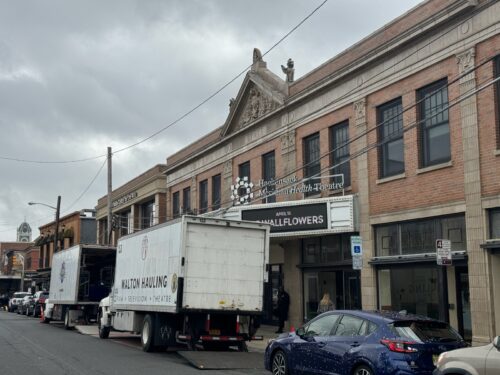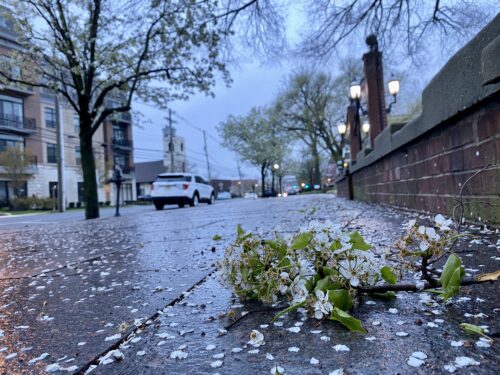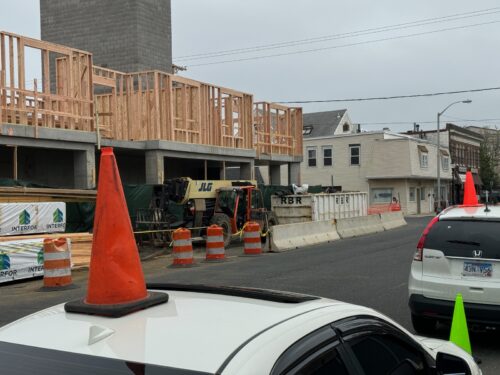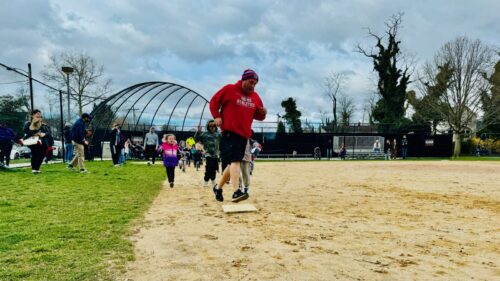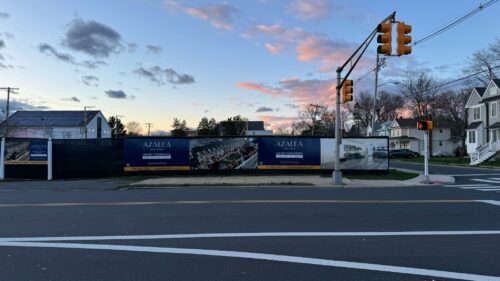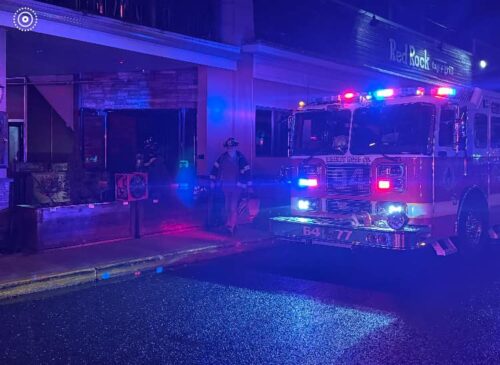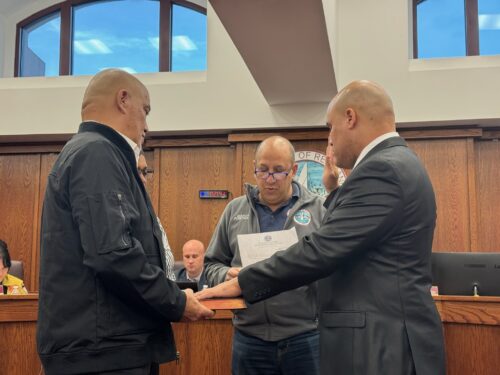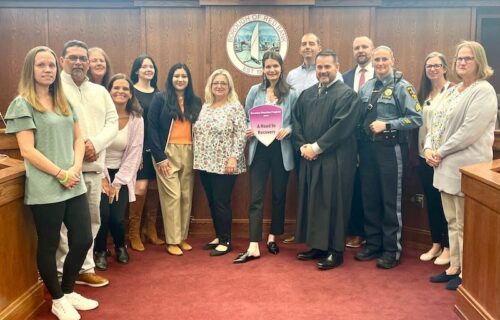 Law enforcement and other officials gathered in the municipal courtroom to mark the debut of the program in Red Bank. (MCPONJ photo. Click to enlarge.)
Law enforcement and other officials gathered in the municipal courtroom to mark the debut of the program in Red Bank. (MCPONJ photo. Click to enlarge.)
Press release from the Monmouth County Prosecutor’s Office
 By the end of next month, nearly one in every five Monmouth County residents will live in a municipality participating in an innovative program designed to shepherd individuals battling substance abuse and mental health disorders into recovery – and that ratio will only continue to grow in the years to come, Monmouth County Prosecutor Raymond S. Santiago announced Tuesday.
By the end of next month, nearly one in every five Monmouth County residents will live in a municipality participating in an innovative program designed to shepherd individuals battling substance abuse and mental health disorders into recovery – and that ratio will only continue to grow in the years to come, Monmouth County Prosecutor Raymond S. Santiago announced Tuesday.
The MCPO Recovery Diversion Program (RDP), which started as a pilot initiative in Long Branch in 2021, has since expanded to Asbury Park and Red Bank this year, with Howell Township and Keansburg slated to also begin participating by the end of October.
“When the Long Branch pilot program began, I was serving as the City’s Municipal Public Defender, allowing me to witness firsthand just how effective it can be – and as County Prosecutor, I’m now blessed to be in the position to oversee its expansion throughout the County,” Prosecutor Santiago said. “RDP participants routinely express amazement in discovering that when they visit Municipal Court to answer to minor criminal offenses, an entire team of dedicated professionals is already there waiting for them, eager to help them get their lives back on track.”
The RDP framework is simple: first, upon arraignment, a Municipal Prosecutor will offer participation to a defendant charged with a non-violent, low-level crime who has a substance use or mental health disorder. If interested, the candidate will be scheduled for a preliminary RDP session, during which he or she will meet a recovery specialist from Hope Sheds Light, a rehabilitative nonprofit organization serving individuals and families in Monmouth and Ocean counties.
The recovery specialist will then explain the program and introduce the candidate to a clinician from CPC Behavioral Healthcare or New Hope Integrated Behavioral Health Care who will schedule an intake appointment and mental health evaluation. After attending the appointment, the participant will begin treatment at the recommended level of care, with regimens ranging in length from 12 weeks to six months.
The 10-person RDP team, under the supervision of RDP Coordinator and Monmouth County Assistant Prosecutor Lindsay Ashwal, receives monthly compliance reports for each participant, and if he or she completes all recommended treatment, maintains contact with Hope Sheds Light, and remains arrest-free, the Municipal Prosecutor will make a motion for dismissal of the charges against them before the Municipal Court Judge. Dismissals are then left to the discretion of the Judge.
Upon completion of the program, each candidate is then encouraged to invite family and friends to attend a graduation ceremony – Asbury Park held its first such ceremony this past Friday, the first day of September’s National Recovery Month. The graduation ceremonies are barely recognizable as court hearings – they’re far more celebratory than procedural, and regularly interrupted by laughter, tears, and too many rounds of applause to count. The first defendant to appear in Asbury Park
Municipal Court on Friday afternoon got a fist-bump from the Municipal Prosecutor and a hug from the County Prosecutor.
“You’re our first RDP graduate (in Asbury Park), and you are setting such an example, not only to your friends and family, but to this community,” Santiago told the graduate as his five children and a host of loved ones looked on, prior to presenting him with a certificate of graduation. “You are going to be the example of all we’re trying to do here.”
“I am giving you the fresh start you deserve for being here today,” Asbury Park Municipal Court Judge Ronald J. Troppoli added while dismissing all of the remaining charges against the graduate, who just recently got hired to a new job and has developed a passion for cooking while in recovery. “We’re going to call him the ambassador of goodwill for this program.”
Asbury Park Municipal Prosecutor James “Jimmy” Butler noted that while he has served in the capacity since 1984, Friday was “one of my best days ever here.”
“It warms my heart to be a part of this,” he said.
“I’ve been mayor here since 2015,” added Asbury Park Mayor John B. Moor, also in attendance, “and this is my best day.” Moor added that the introduction of RDP in Asbury Park was made possible in great part due to support the idea received from the City Council and Municipal Court staff.
“I am grateful to have the chance to offer this opportunity to those people who are interested,” Asbury Park Municipal Court Administrator Joanne Pilliod said. “It is an incredible program for all of us to be involved with.”
Funding for RDP has been provided by an Operation Helping Hand grant administered by the New Jersey Office of the Attorney General (OAG). Additional partner organizations include the New Jersey Reentry Corporation, a nonprofit group that helps connect participants to education and job training and placement, as well as the municipal police departments, local elected leaders, and municipal court administrators, judges, public defenders, and prosecutors in each participating town.
“To call this a group effort would be a massive understatement,” Prosecutor Santiago said. “Each expansion of RDP, tailored to suit the needs of each newly participating municipality, necessitates buy-in from virtually every branch of municipal government – but we’re finding that once we outline precisely how the program works, what the benefits are, and the fact that it comes at no cost, there has been an overabundance of receptive audiences.”
Local towns haven’t been the only audiences to hear about the program from Prosecutor Santiago, Ashwal, and others involved – over the last two years alone, they have delivered presentations about RDP to the OAG Advocacy Institute, New Jersey State Bar Association, Monmouth County Bar Association’s Municipal Court Committee, Monmouth County Court Administrators Association, and other groups.
The Substance Abuse and Mental Health Services Administration’s (SAMHSA’s) most recent National Survey on Drug Use and Health found that more than 46 million people nationwide meet the criteria for having a substance use disorder, yet 94 percent of them do not receive any treatment. The Survey also found that approximately 1 in 4 American adults experienced signs of mental illness over the past year.
More than a million Americans have died due to a drug overdose in the 21st century, including a record high of nearly 110,000 last year. An estimated 1,500 lives were lost across Monmouth County in the decade stretching from 2012 through 2021.
“The twin scourges of substance abuse and mental illness together constitute the defining public-health challenge of our times,” Prosecutor Santiago said. “And the only path to victory will involve programs such as these, which directly connect individuals in crisis with the social services they so desperately need.”
For more information about the Recovery Diversion Program, go online to http://mcponj.org/recovery-diversion-program/.


